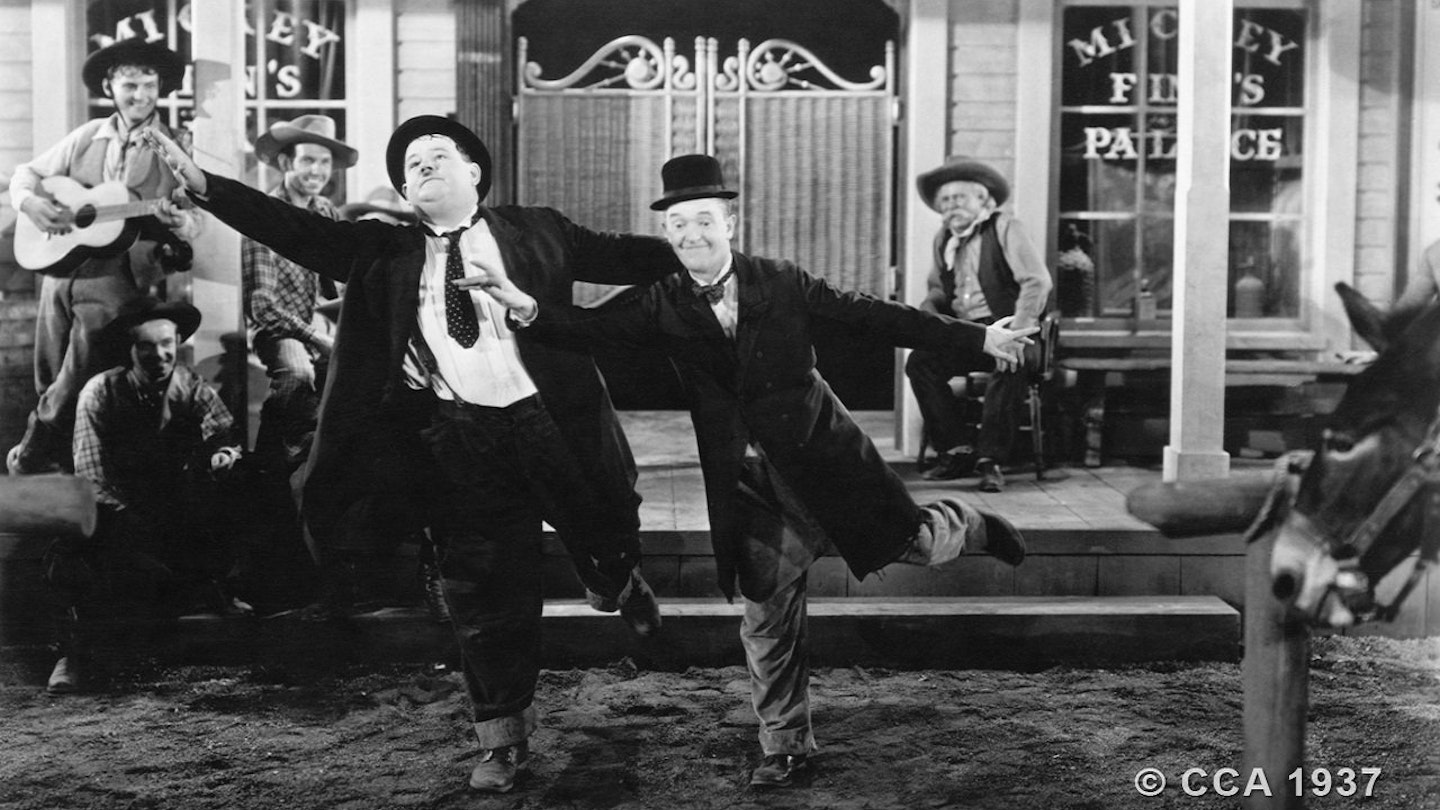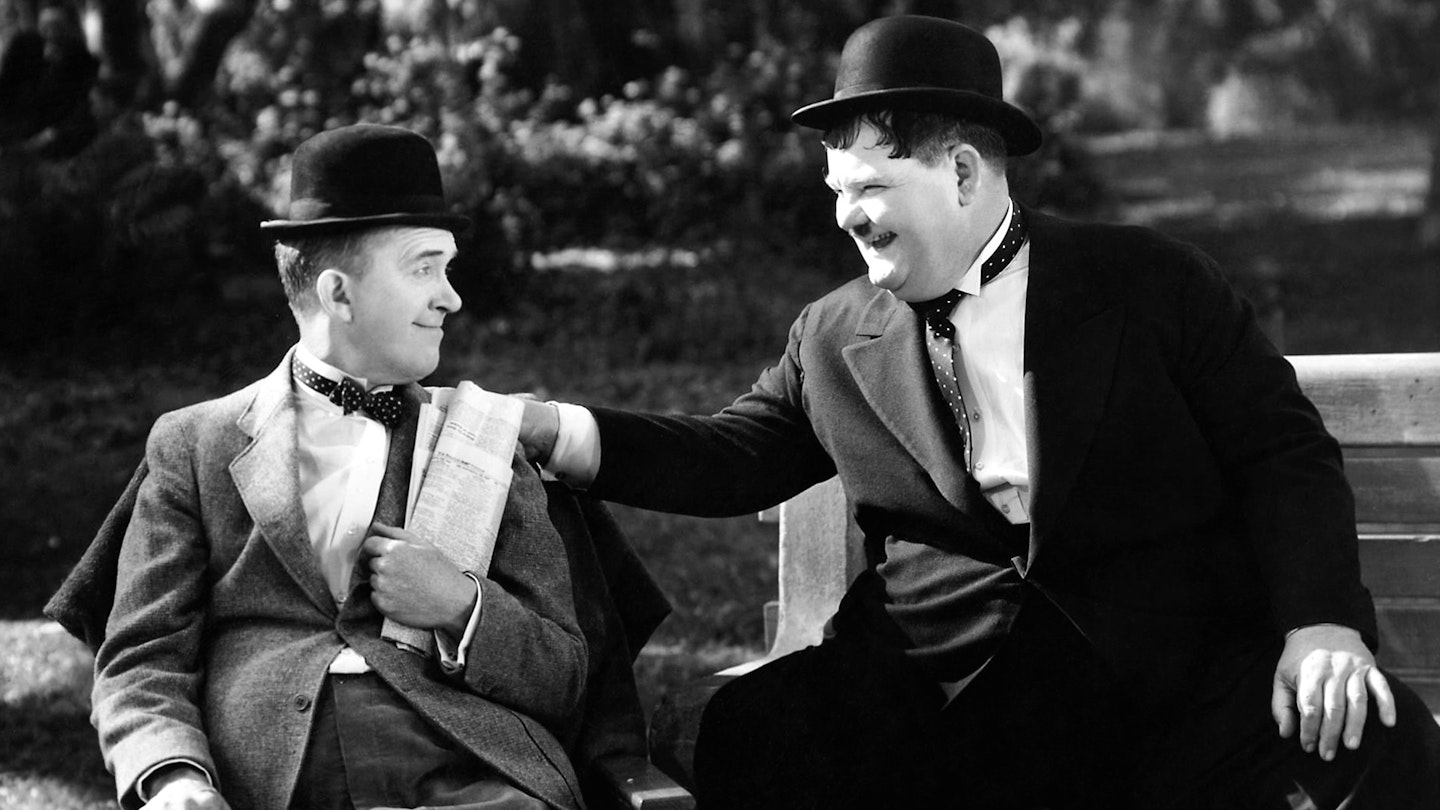Ruth Laurel apparently suggested that Stan and Ollie should make a comedy Western. No one had attempted anything similar since Buster Keaton's Go West (1925) and the boys were eminently well qualified, as not only had Oliver Hardy made silent Westerns, but Stan Laurel had also been one of Hollywood's most gifted parodists during the same period. But what set this enduringly popular romp apart from other movie spoofs was that Stan genuinely lampooned generic conventions rather than simply exploiting them as a convenient backdrop for situation or slapstick comedy. Thus, Way Out West was more wholly integrated than most Laurel and Hardy vehicles and this tautness left no room for the diversionary set-pieces that were too often shoehorned into their later features.
Yet, this genial picture was produced under the most trying circumstances. When he wasn't competing with other studios for a title (You'd Be Surprised, Tonight's The Night and In The Money all had to be discarded as they had already been copyrighted elsewhere), producer Hal Roach was squabbling with Stan over his new contract. He certainly need the cash, too, as not only did Ruth walk out on him a week into the shoot, but his former vaudeville partner and self-proclaimed common-law wife Mael Laurel also arrived demanding alimony. Ollie's life was no less chaotic, as no sooner had his estranged spouse, Myrtle, sued for maintenance than his first wife, Madelyn, showed up destitute and demanding a new settlement.
But there's no evidence of such strife in the masterly saloon chase sequence, which Stan ends up spectating in pleats of helpless laughter having been tickled remorselessly by Sharon Lynne. Nor in the delightful dance routine the duo concocted to the Avalon Boys' number, At the Ball, That's All', or in the rendition of The Trail of the Lonesome Pine', which was recorded live (with the exception of Chill Wills' and Rosina Lawrence's bass and soprano interludes) and released as a single in the UK in 1975, when it reached No.2 in the charts. What's that about the tears of a clown?
Comic genius, pure and irresistibly simple.

